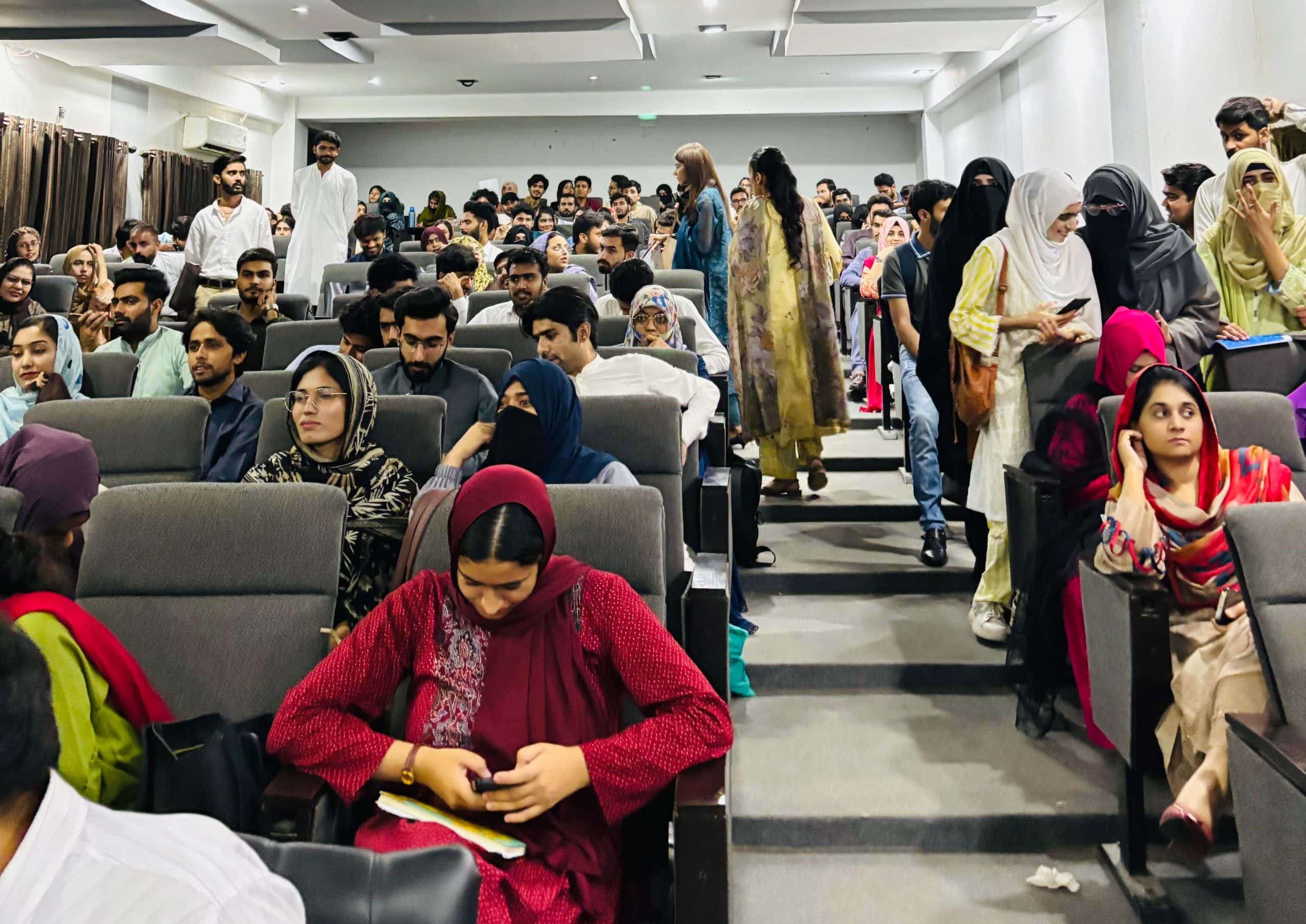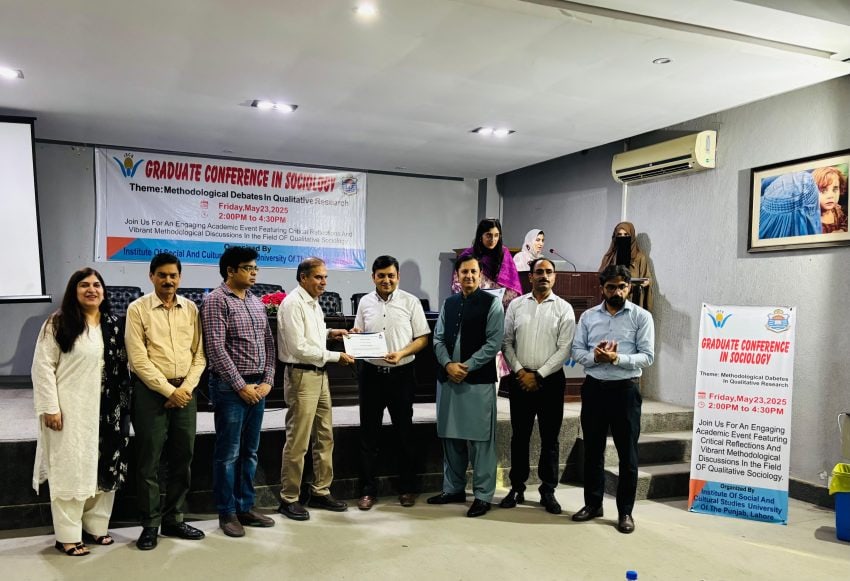LAHORE – Institute of Social and Cultural Studies (ISCS) University of the Punjab successfully organized graduate conference titled “Methodological Debates in Qualitative Research”, drawing participation from over 200 graduate students, researchers, and distinguished academics.
The event served as dynamic platform for young scholars and faculty to engage in in-depth discussions on the complexities and innovations in qualitative research. The conference explored a wide range of themes, including the philosophical foundations of qualitative inquiry, ethnographic fieldwork methods, research architecture, and the challenges researchers often face in the field.
In his inaugural address, Prof. Dr. Farhan Navid Yousaf, Director of ISCS, emphasized the importance of such academic gatherings. “This conference not only offers our graduates a space to showcase their research but also inspires meaningful dialogue and provides exposure to diverse methodological perspectives,” he said.

The sessions, divided into various thematic segments, facilitated productive exchanges between graduate students and leading academics. Participants shared their research findings and reflected on the evolution and utility of different qualitative techniques.
Conference Secretary Prof. Dr. Ahmad Usman announced that the event marks the beginning of a larger initiative. “This is the first step towards launching an annual international conference that will bring leading scholars from around the world to Punjab University,” he revealed.
Among the guests of honour were Prof. Dr. Anjum Nasim Sabri, Chairperson of the Doctoral Programme Coordination Committee (DPCC), and Prof. Dr. Muhammad Nasir, a member of the Punjab University Syndicate. Both dignitaries praised the initiative and lauded it as a significant contribution toward fostering a strong research culture in Pakistan.
The event concluded on a high note, with participants expressing appreciation for the platform that not only broadened their academic exposure but also strengthened scholarly connections within the research community.













